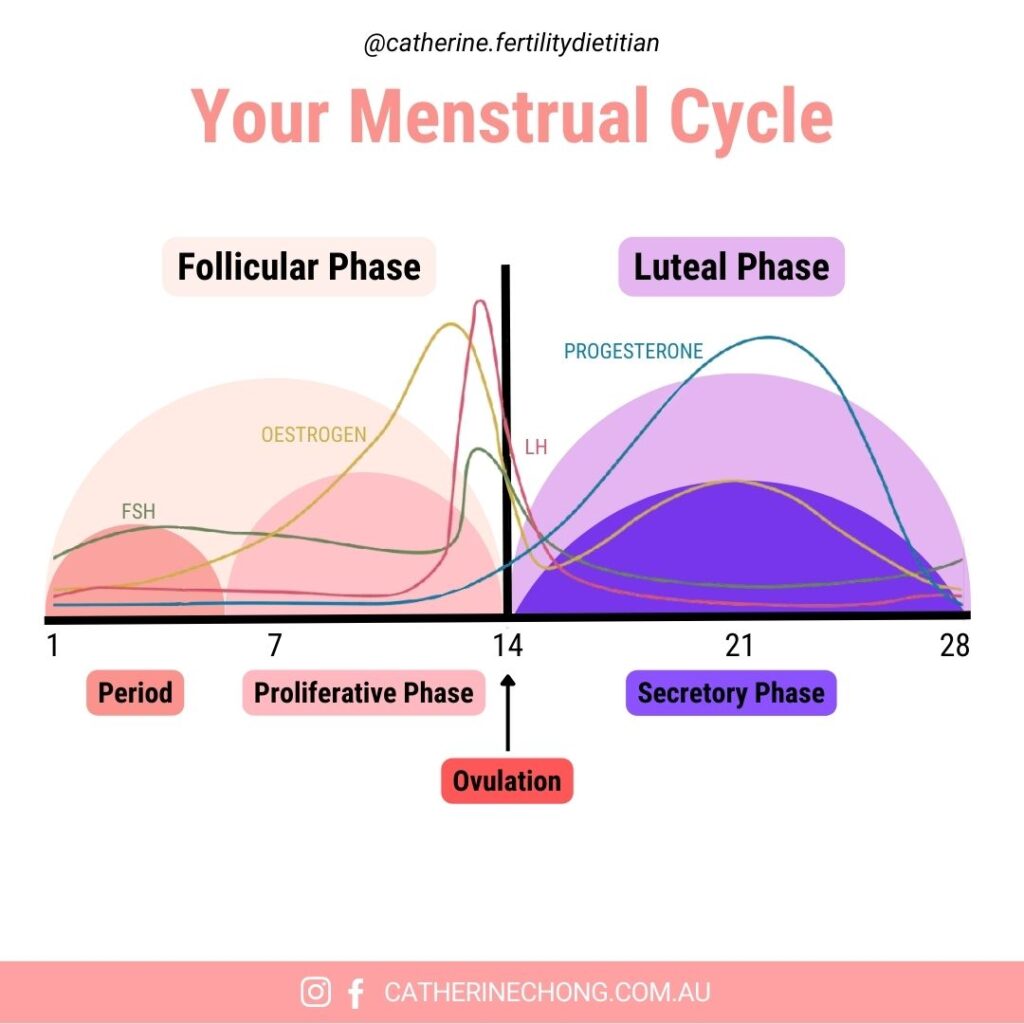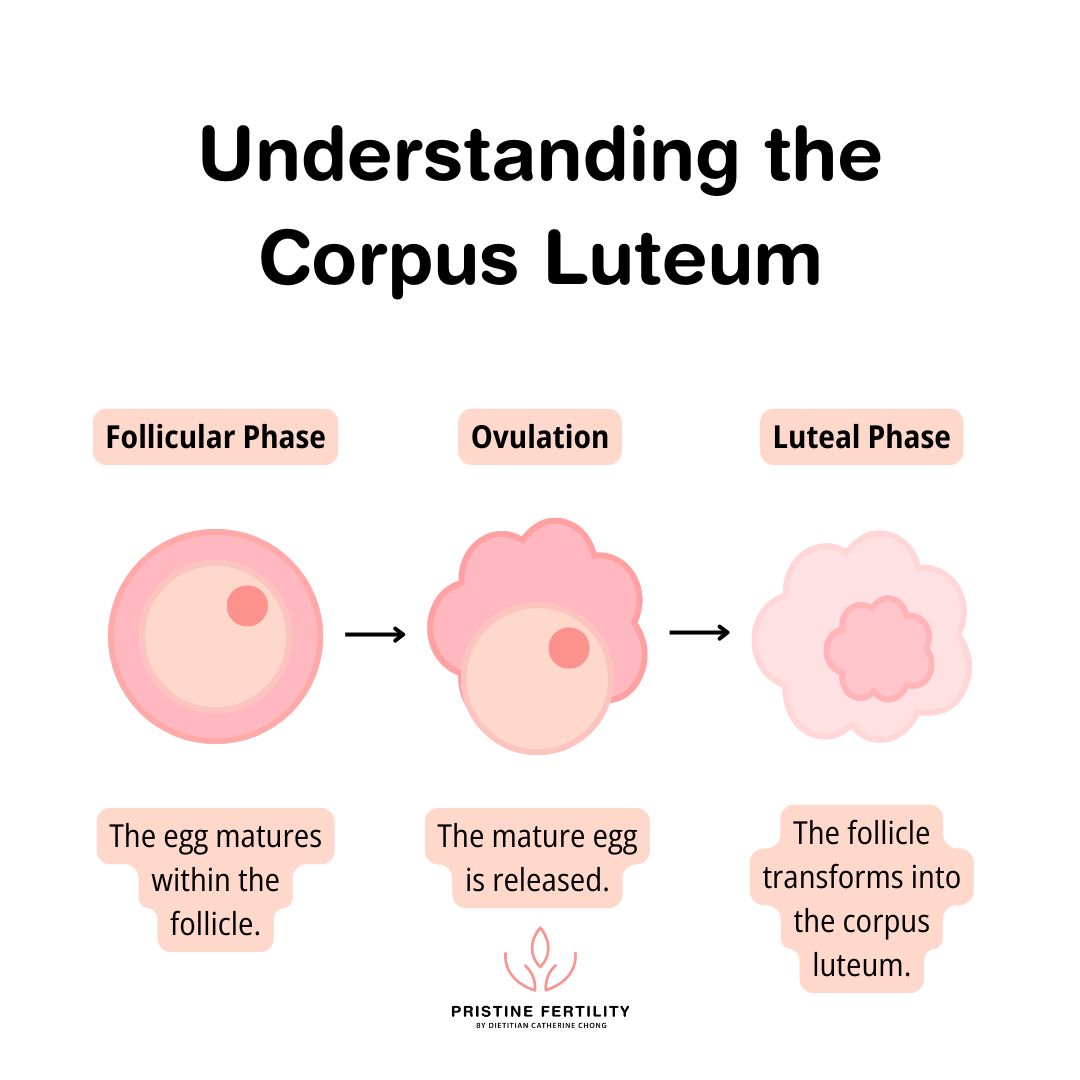How to Increase Progesterone to Support Pregnancy
Are you trying to conceive and curious about how to increase progesterone naturally?
Progesterone, often called the “pregnancy hormone,” plays a vital role in preparing your body for conception and supporting a healthy pregnancy.
In this post, we’ll explore why progesterone is essential and share three practical nutrition tips for naturally boosting progesterone levels.
Understanding the Role of Progesterone in Fertility and Pregnancy
Progesterone works quietly behind the scenes, especially in the second half of your menstrual cycle, by preparing the uterus for a potential pregnancy. After ovulation, progesterone helps thicken the uterine lining, creating a nutrient-rich environment for a fertilised egg to implant and thrive.

During the early phase of the pregnancy, your ovaries produce progesterone hormone until the placenta takes over for the remainder of the pregnancy. However, low progesterone level can make conception and sustaining a pregnancy more challenging.
Some common signs of low progesterone include irregular menstrual cycles, difficulty conceiving and miscarriage.
If you notice signs of low progesterone, such as irregular cycles, spotting before your period, or trouble maintaining a pregnancy, it’s essential to consult a medical healthcare provider for a proper health assessment and treatment plan.
Now, let’s explore how you can naturally boost your progesterone levels to support fertility and a healthy pregnancy journey.
1. How Zinc Supports Hormonal Balance and Boosts Progesterone
Zinc is a powerful mineral with numerous benefits, especially for hormonal health. It is central in regulating essential hormones, including insulin, testosterone, and progesterone, for many women.
Zinc enhances the body’s ability to respond to critical reproductive hormones, such as estrogen and progesterone. It also helps create “zinc finger proteins,” essential for proper hormone expression in the body. This makes zinc necessary for maintaining hormonal balance and supporting healthy progesterone levels.
However, it’s worth noting that serum zinc tests aren’t always reliable indicators of actual zinc status. Still, lower zinc levels (<56 μg/dL) can adversely affect women’s reproductive health.
Before starting supplementation, remember that excessive zinc intake can interfere with other nutrients like copper, which may have long-term health impacts. Consulting a fertility dietitian or healthcare provider is essential to ensure safe, effective supplementation tailored to your needs.

Try adding zinc-rich foods to your daily diet. Oysters, beef, pork, seafood, lentils, and pumpkin seeds are excellent sources of zinc. Prioritising these nutrient-dense foods can offer whole-food support for hormonal balance and reproductive health.
2. The Role of Iron in Hormonal Balance & Increase Progesterone
Iron is crucial for reproductive health and can indirectly support those seeking to increase progesterone.
Iron is an essential part of hemoglobin. It enables red blood cells to carry oxygen throughout the body, including to vital reproductive organs like the ovaries and uterus. This oxygen transport is essential for healthy hormone production, including progesterone.
Iron is also a key player in hormone synthesis, as it supports enzymes like Cytochrome-P450, which metabolise estrogen and progesterone. When iron levels are low, commonly seen in anemia, this can disrupt hormonal balance, potentially leading to lower progesterone levels and irregular menstrual cycles.
A lower iron status may compromise the blood flow to the ovaries, potentially affecting the quality of eggs and the regularity of ovulation in a study in mice.
Regular iron screenings, at least once a year, especially for women of any reproductive age, can help ensure optimal iron levels. In addition, consulting with a fertility dietitian can help you understand if high-dose iron supplementation is required with the right type and optimum timing of supplementation.
Interested in learning more about what to eat during the two-week wait? Click here to read our previous blog and discover nutritious foods that boost your chances of conception.
3. How to Increase Progesterone: The Impact of Blood Flow to the Corpus Luteum
The corpus luteum is crucial in producing progesterone during the luteal phase. The corpus luteum is a temporary gland formed in the ovary after ovulation
After ovulation, the follicle that housed it transforms into the corpus luteum, which plays a crucial role in reproductive health by producing progesterone. The corpus luteum undergoes rapid blood vessel development, becoming one of the most highly vascularised parts of the body.
This increased blood flow is crucial for transporting cholesterol, which is needed to make progesterone, and for ensuring that progesterone reaches the bloodstream effectively.
Progesterone from the corpus luteum helps maintain the endometrial lining for potential implantation, supporting early pregnancy if fertilisation occurs. However, for women with luteal phase defects (LFD)—a condition where the body doesn’t produce enough progesterone—reduced blood flow to the corpus luteal can hinder progesterone production.
One small pilot study investigated ways to improve corpus luteum blood flow to help increase progesterone levels in women with LFD. Participants with high corpus luteum blood flow resistance were given supplements like Vitamin E, L-arginine, melatonin, or human chorionic gonadotropin (HCG) to see their effects on blood flow and progesterone.
Results showed that Vitamin E improved blood flow in 83% of women and boosted progesterone in 67%. In comparison, L-arginine and HCG enhanced blood flow in 100% of cases and significantly increased progesterone levels. Melatonin, however, had no notable effect.
This research highlights that improving blood flow to the corpus luteum, especially with Vitamin E and L-arginine, may increase progesterone levels, naturally supporting fertility and hormonal health. However, future prospective randomised controlled trials with larger samples are needed to demonstrate the efficacy of these treatments for luteal phase defects.
Bottom Line
- Zinc supports progesterone and estrogen regulation.
- Iron aids oxygen delivery to reproductive organs, supporting progesterone production.
- Improving blood flow with Vitamin E, L-arginine, or, under medical supervision, HCG may boost progesterone for women with luteal phase issues.
- Consulting with a medical practitioner and fertility dietitian is essential before starting any nutritional supplementation or hormonal treatment.
